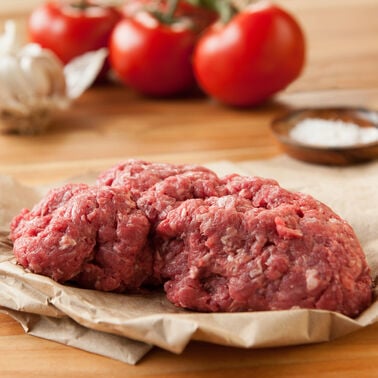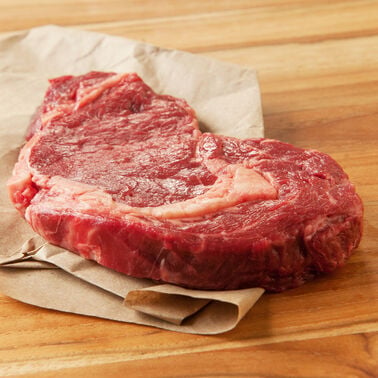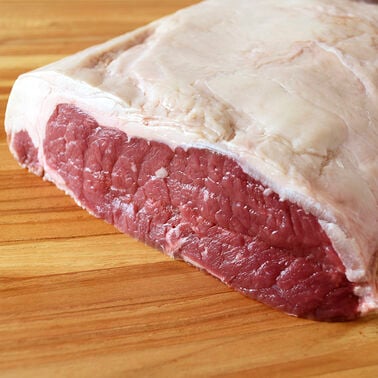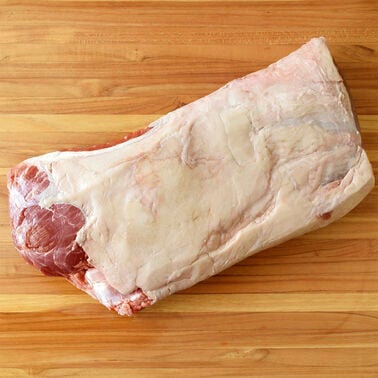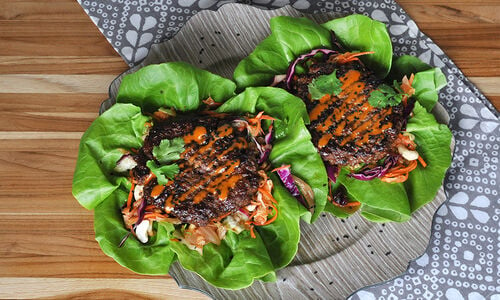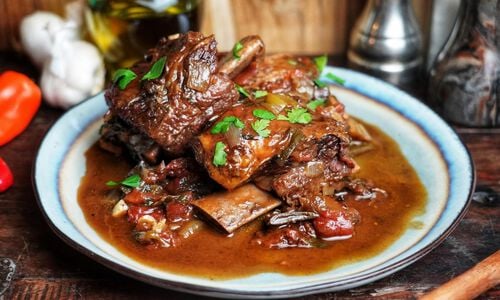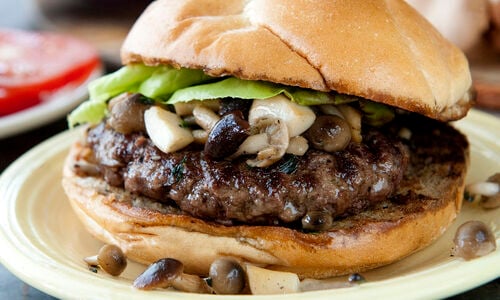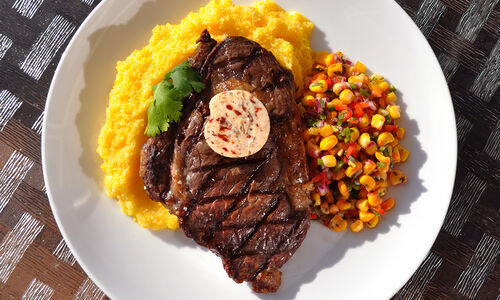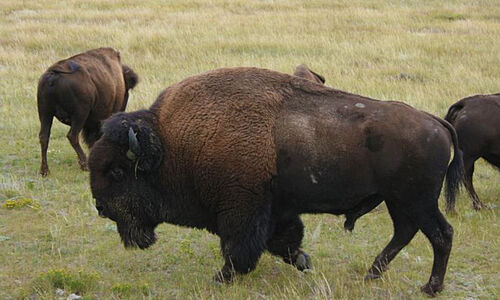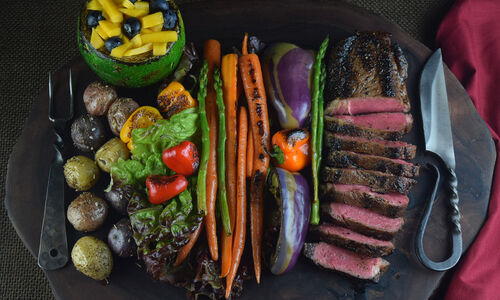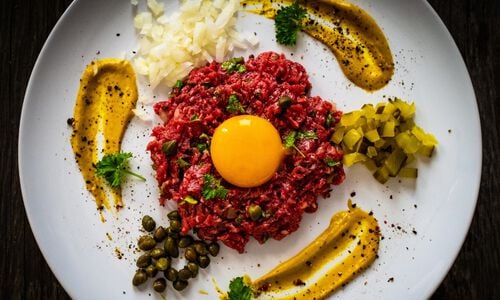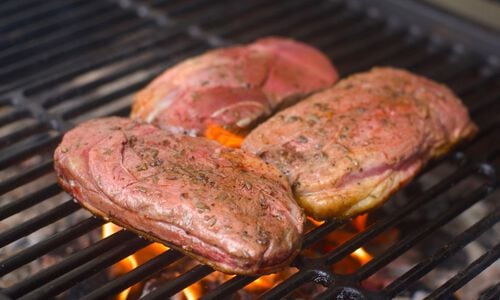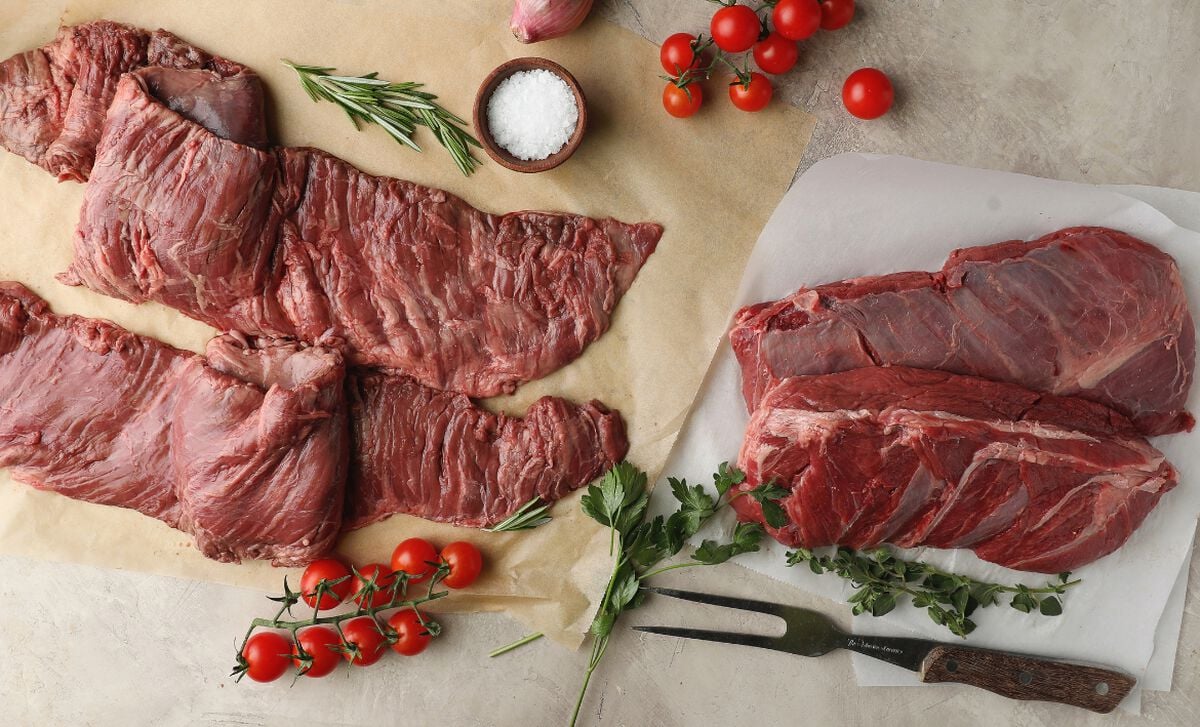
Bison: A Nutritional Powerhouse
The lean, red meat of the American bison has between 15 and 30 percent more protein and 25 percent less cholesterol than beef. For example, in a 3½ ounce serving of buffalo sirloin, there are only 3 grams of fat (compared with 14 grams in beef sirloin), and about half the calories (120 versus 210). This nutritionally dense meat is also higher in iron than beef.
Cooking Bison Meat
Since buffalo meat has less fat than other red meats it cannot stand up to intense heat. Fat is an insulator that melts before meat begins to cook. When that doesn’t take place, the meat starts cooking immediately. Since the cuts of beef and bison look the same, except that bison meat is darker in color—a brownish red—people often mistakenly overcook it.
Always add a little fat when cooking bison; either brush lightly with oil, baste with butter, or use rendered bacon fat in a heavy pan.
It’s also important to moderate the heat. If you roast a piece of beef at 325 degrees F, lower the temperature to 275 degrees F for a similar cut of buffalo. For broiling, lower the broiler pan down a notch, at least 6 inches from the heat. And for grilling, use the cooler part of the grill. The bison meat will then cook for about the same length of time as a comparable cut of beef.
To be sure of the degree of doneness, an instant-read thermometer is the best tool. The ideal internal temperature is 125 degrees F to 130 degrees F, for medium rare. Refer to our handy printable guide for cooking specific cuts of bison here.
Remember that meat continues to cook after it is removed from the heat source and allowed to rest. Take care not to overcook this lean meat. No poking holes in it, either, to let all the juices escape.
What to Eat with Bison
Like the true native that it is, bison meat is a great partner with other indigenous American foods, like corn, tomatoes, peppers, chilies, and bourbon. While the meat can take strong spices, it’s best to season simply and enjoy the natural flavor. Try it and you will be hooked on the rich, sweet, and satisfying taste of bison meat.
